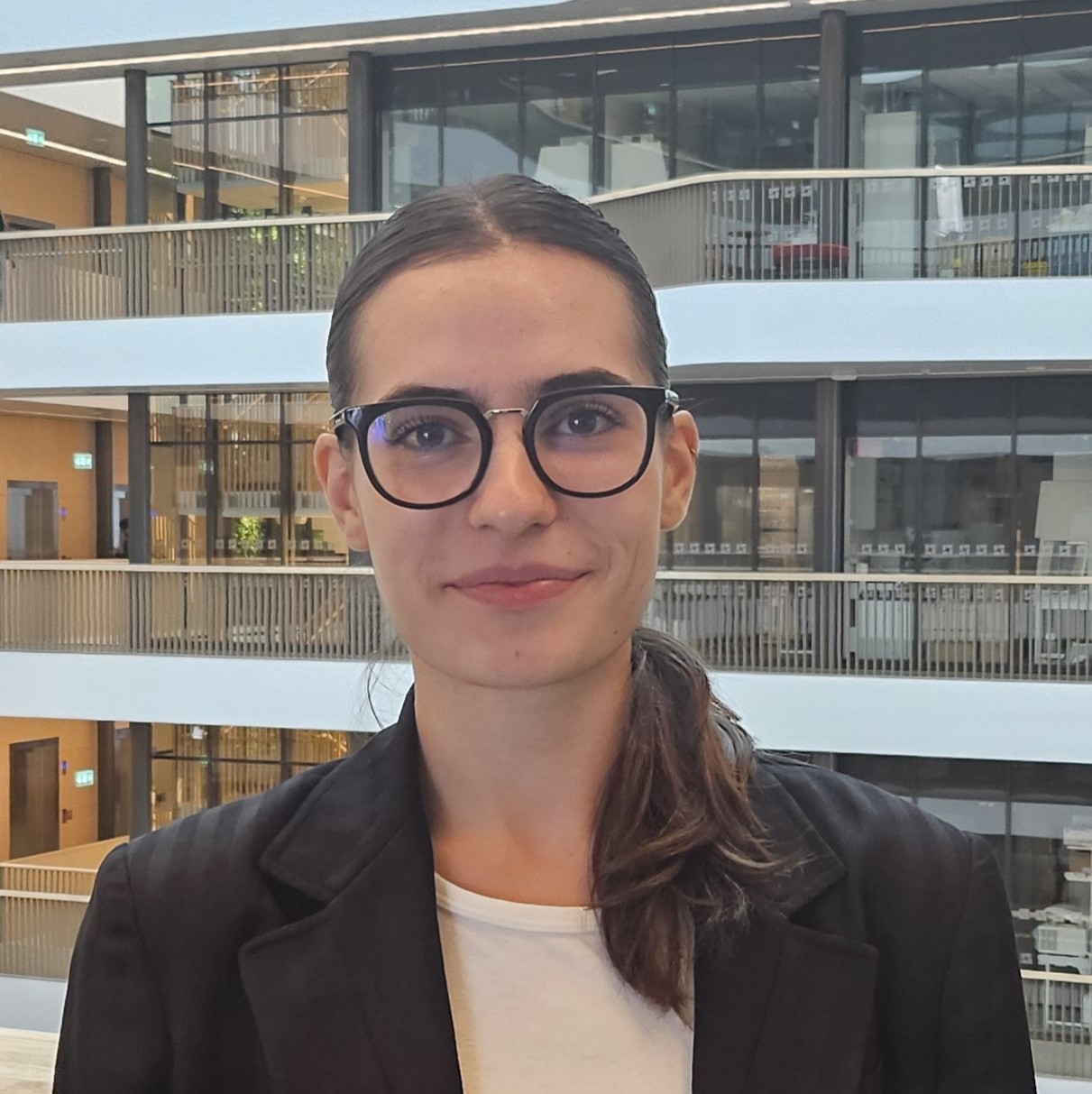Our Team


Stefanos Stagkourakis, PhD
Group Leader
In his doctoral and postdoctoral research, Stefanos focused on investigating genetically-defined and genetically-heterogeneous large neuron populations to uncover how they encode and control diverse instinctual behaviors.
His research interests include, but are not limited to understanding:
a) the biological and computational principles that enable robust cognitive and behavioral outcomes despite the inherent variability in the activity of relevant neuron populations
b) the implementation of plasticity to generate optimal behavioral expressions, and its reversal to extinguish pathophysiological behaviors when they emerge, and
c) the neural network, hormone, and neurotransmitter dynamics that actuate long-lasting internal states and the expression of individual behavioral actions.

Giada Spigolon, PhD
Microscopy Specialist
Giada Spigolon is a senior scientist with extensive experience in neurobiological research, possessing deep expertise in advanced microscopy techniques such as confocal, light-sheet, and two-photon microscopy. As an integral member of the Stagkourakis laboratory, she supports multiple projects and leads cutting-edge investigations examining the roles of targeted neuronal populations in survival behaviors.

Zhen Su, PhD
Postdoctoral Fellow in Computational Neuroscience
Zhen Su is a postdoctoral researcher with a PhD in network science from Humboldt-Universität zu Berlin. His background spans complex systems modeling across natural sciences, including pioneering work integrating network analysis with climatology to reveal global patterns of climate extremes. In the Stagkourakis Lab, Zhen bridges computational and systems neuroscience with network science to investigate the neural principles underlying instinctual behaviors. His work focuses on mapping the anatomical organization and information flow among neural circuits that drive behavior, identifying key computational motifs, and generating experimentally testable predictions to be assessed through application of advanced neurotechnologies and custom behavioral paradigms.

Yi Qin, PhD
Postdoctoral Fellow in Experimental Neuroscience
Yi Qin is a postdoctoral researcher with a PhD in neuroscience from the University of Amsterdam. His doctoral work explored cortico-thalamo-cortical feedback networks, focusing on their role in visual plasticity and schizophrenia. In the Stagkourakis Lab, he investigates the neural ensemble dynamics and plasticity of the fear system, aiming to uncover how maladaptive defensive behaviours arise.

Magdalena Pikus, MSc
Research Assistant
Magda is a neuroscientist driven by curiosity about how neural circuits give rise to brain function and dysfunction. She was a Fulbright Visiting Research Graduate Trainee at the University of Virginia, USA, where she explored gene therapies for temporal lobe epilepsy and mapped the brain circuits engaged by anesthesia. She brings hands-on expertise in single-unit recordings, ECoG, and immunohistochemistry. During her MSc, she investigated protein–lipid interactions in α-synuclein, a protein central to Parkinson’s disease pathology.

Miguel Rocha, MSc
Research Assistant
Miguel is an aspiring Biomedical Engineer with entry-level proficiency in Signal Processing and Machine Learning pipelines in Python and Matlab applied to biosignals, specifically the Electroencephalogram (EEG) with a focus on Brain-Computer Interfaces (BCI). Further academic competencies and interests involve building circuitry (PCBs) related to signal acquisition/conditioning for Medical Devices, process control, and developing Android Applications in Java that monitor users' states. With experience in agile methodologies, his aim is to combine technology and medicine to advance medical knowledge, create solutions that enhance human health/well-being, and improve the overall efficiency of the healthcare system with reduced costs.

Yuxi (Aeris) Chen
Research Intern
Aeris is a visiting undergraduate student from the Biological Sciences program at Nanyang Technological University (NTU), Singapore. She has trained in multiple laboratories, developing a strong foundation in molecular and cell biology techniques. In the Stagkourakis Lab, she is expanding her expertise into systems neuroscience, acquiring skills in stereotaxic surgery, behavioural analysis, and advanced microscopy. Her work contributes to the lab’s investigation of molecular regulators of internal and behavioural states, with a particular focus on sex-dimorphic mechanisms.

Noemie Baulu
Master’s Student - Visiting Research Intern
Noémie Baulu is a Master’s student in Cellular and Molecular Neuroscience at the University of Rouen, France, with a strong interest in how the environment shape behavior. She is motivated by understanding how cellular and molecular brain mechanisms give rise to decisions and behavioral strategies.
During her five-month internship in the Stagkourakis Lab, Noémie investigates social behavior phenotypes through detailed behavioral analysis, combining manual annotation with machine-learning–based tools such as DeepLabCut and keypoint-MoSeq. In parallel, she contributes to experimental studies of social behavior using optogenetic manipulations in established social behavioral assays.

Natasa Rácz
Research Intern
Natasa is an undergraduate student in the Biomedicine program at Karolinska Institute with a growing interest in neurobiochemistry and bioinformatics. During her internship in the Stagkourakis Lab, she is applying MATLAB-based pipelines for video annotation and quantitative analysis of diverse behavioral assays, including social interactions, feeding, and fear responses. Through this work, Natasa is gaining hands-on experience at the interface of behavior, neural circuits, and computational analysis, while developing skills that bridge experimental neuroscience and data-driven analytical approaches.








